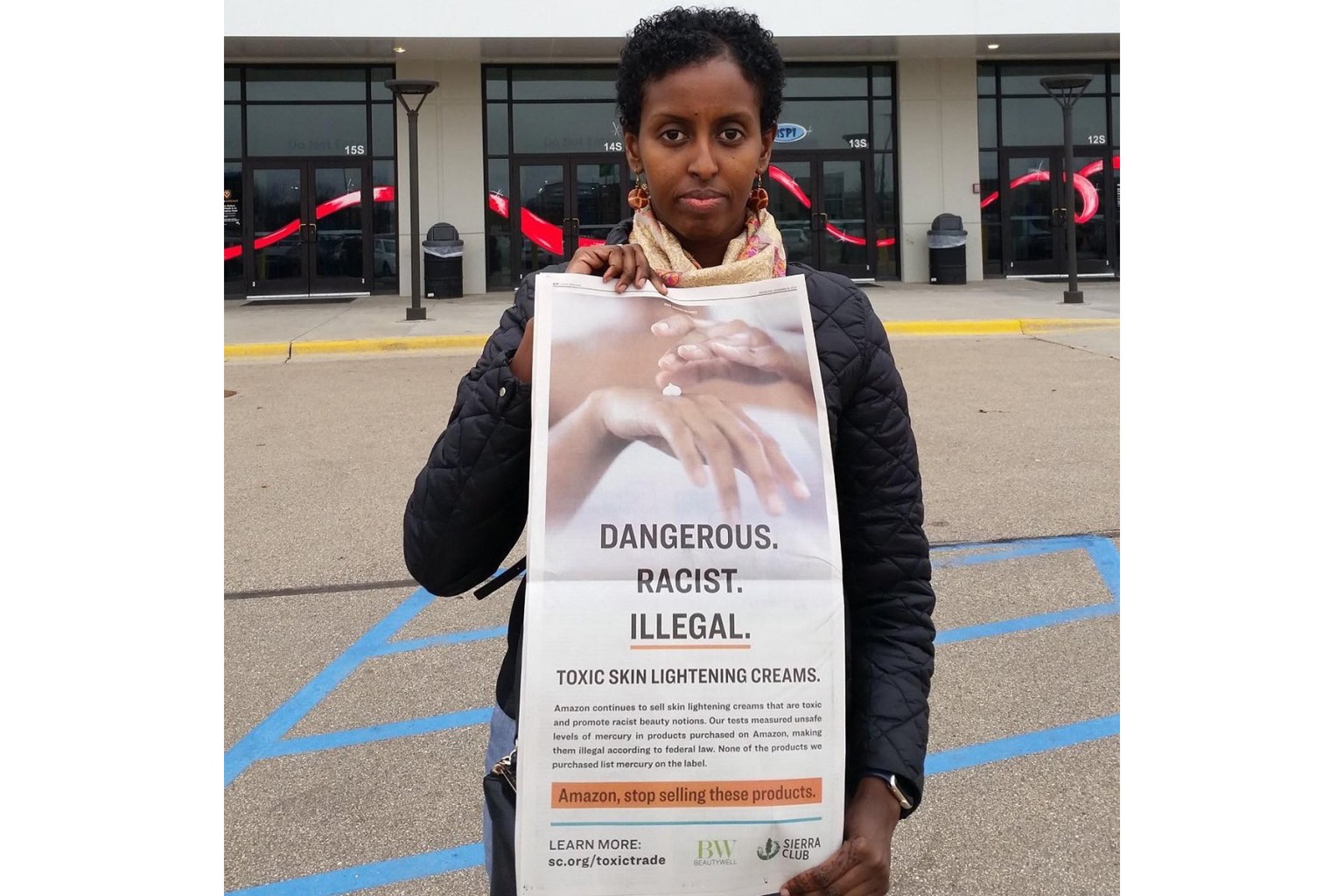Skin lightening/whitening/bleaching products are prolific in Black and brown communities throughout the world, but they have had a particularly strong impact in the U.S. and Africa. This is a massive industry: Globally, its estimated market value is $8.3 billion, and the U.S. market alone is an estimated $2.3 billion. Given the size of this industry, it is critical that we give an accurate picture of these dubious products.
The success of these products can be attributed to a number of factors rooted in racism, colorism, colonialism, and white supremacy. For centuries, we have been told by the beauty, fashion, and movie industries that lighter skin is more desirable and more beautiful. Our society implicitly benefits those with lighter skin, and represses those with darker complexions. This toxic idea that darker is somehow less than and the very real consequences of colorism have created the market for skin-lightening products.
However, along with the negative impact on mental wellbeing, these products often contain dangerous substances that can lead to serious physical ailments. These products, both legal and illegal, often come loaded with hazardous chemicals, such as hydroquinone and mercury. These substances can lead to discoloration, damaged skin, kidney damage, and birth defects, including neurological damage in early childhood. The products also contain highly potent steroids.
This is a racial equity issue, a gender issue, and a health issue. We are worried about the impact it can have on children during early childhood development, given what we know about neurological problems caused by mercury exposure. Many consumers are unaware of the dangers associated with the use or misuse of these products, leading to tragic consequences.
While there are some protections in this deregulated industry, the market has also been filled with counterfeit or lower quality products that have especially high concentrations of these dangerous chemicals.
Doing what it takes to put an end to skin-lightening products
While we must continue to take anti-racist action as a society to end colorism and racism, we also need to increase awareness of the dangers these products pose throughout our BIPOC communities. In the past, the state has provided funding to the Minnesota Department of Health to raise awareness of the health effects of these products. But we can, and should, do more. The issue has not gone away and we need a stable source of funding to perform this important equity work.
That is why we are advocating for HF 1419, which would appropriate funds for the commissioner of health to develop a grant program to increase public awareness and education on this issue. Specifically, the bill seeks to fund education campaigns around the health risks of skin lightening creams, mercury, and other toxic chemicals in these products.
What is particularly important about this bill is that it directs the health commissioner to prioritize funding BIPOC organizations that work within communities of color and Indigenous communities so that we can help educate folks in a culturally relevant context. We have to approach our communities with trusted sources and authorities in the community if we are to have a lasting impact. That is what the BeautyWell Project strives to do while also lifting up leaders within these communities to create a culture that will work to end skin-lightening practices for good.
Black is beautiful. We as a society must move toward a place that values and respects beauty in all forms and all its hues. We must work to break this misconception that lighter skin is somehow more desirable. We hope you can join us in this fight to create a world where the beauty of all skin tones is celebrated.
